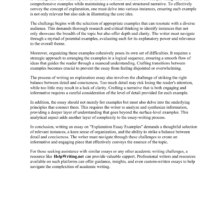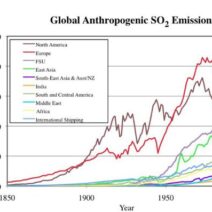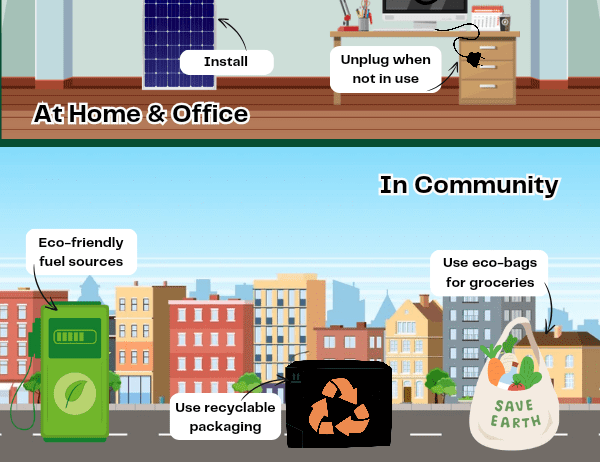Conserving energy is not merely an environmental imperative; it is a multifaceted endeavor that requires a fundamental shift in how we perceive energy usage in our daily lives. To truly embrace energy conservation, we must cultivate a holistic understanding of its underlying principles and requisite actions that empower individuals, businesses, and governments to implement effective strategies. In this exploration, we delve into the essential components necessary for energy conservation to hold true.
First and foremost, education plays a crucial role in fostering an awareness of energy conservation’s significance. It is essential to disseminate knowledge about the relationship between energy consumption and environmental degradation. By enlightening individuals about the repercussions of excessive energy use—such as climate change, resource depletion, and air pollution—we can inspire a conscious shift toward more responsible practices. Educational initiatives should focus not only on the consequences of energy misuse but also on illustrating the tangible benefits of conservation, including economic savings and enhanced quality of life.
Next, technology emerges as a formidable ally in the quest for energy conservation. Innovative advancements in energy-efficient appliances, smart home devices, and renewable energy sources herald a new era in energy management. For instance, smart thermostats can optimize heating and cooling patterns based on occupancy, dramatically reducing unnecessary energy expenditure. Moreover, solar panels and wind turbines offer sustainable alternatives to traditional energy sources, significantly diminishing our carbon footprint. As technology continues to evolve, the adoption of these tools becomes more accessible, encouraging individuals and businesses to make informed decisions that support energy conservation.
In tandem with technological innovation, policy frameworks must incorporate stringent regulations and incentives that promote sustainable practices. Governments wield the power to effect change by establishing energy efficiency standards, providing financial incentives for energy-saving upgrades, and investing in renewable energy infrastructure. For example, tax credits for homeowners who install solar panels can stimulate widespread adoption. Furthermore, mandating energy disclosures can drive transparency in energy consumption, compelling entities to address inefficiencies and embrace more sustainable methodologies. Such policies create an environment where energy conservation is not merely encouraged but necessitated.
Cultural shifts are equally important in laying the groundwork for a conservation-oriented society. The prevailing narratives regarding energy use often glorify excess and convenience. Consequently, cultivating a culture that prioritizes minimalism and sustainability becomes imperative. By celebrating practices such as carpooling, using public transportation, and adopting a plant-based diet, society can redefine success and progress in terms that emphasize ecological balance. This cultural metamorphosis requires the participation of influencers, educators, and community leaders who can champion the cause of conservation and inspire collective action.
Moreover, community engagement serves as the bedrock of grassroots energy conservation efforts. Local initiatives that encourage communal participation can spark significant change. Examples include neighborhood energy-saving challenges, where participants collaboratively reduce their energy usage, fostering a sense of camaraderie while simultaneously raising awareness. Additionally, community gardens and urban farming projects can demonstrate the principles of sustainability, reinforcing the notion that energy conservation extends beyond individual actions to collective responsibilities. Engendering a sense of shared purpose can galvanize individuals toward greater commitment to energy-sustaining practices.
It is also vital to recognize the influence of behavioral psychology in energy conservation efforts. Understanding how and why individuals make energy-related decisions can lead to the development of strategies that effectively nudge humans toward more sustainable behaviors. For instance, employing behavioral cues or “nudges” such as reminders, social comparisons, or default settings can yield substantial changes in energy consumption patterns. By tapping into the cognitive biases that shape our choices, we can devise interventions that align with human behavior, ultimately rendering energy conservation more intuitive and achievable.
Furthermore, the concept of energy resilience merits attention in our discussion on conservation. Energy resilience refers to the ability of individuals, communities, and systems to anticipate, prepare for, and adapt to energy-related disruptions. Building resilience entails diversifying energy sources, investing in local renewable options, and establishing decentralized energy systems that reduce dependence on a single grid. By promoting energy independence and local generation, we not only bolster conservation efforts but also fortify society against potential energy crises.
Finally, it is imperative to acknowledge the role of social equity in energy conservation. The benefits of energy-efficient technologies and practices often do not reach marginalized communities, reinforcing existing inequalities. Efforts toward energy conservation should prioritize inclusivity, ensuring that all demographics have access to the resources and education necessary for sustainable practices. Programs that subsidize energy-efficient appliances or provide financial support for retrofitting low-income housing can help bridge the gap, allowing all members of society to participate in the energy conservation movement.
In conclusion, for conservation of energy to hold true, a confluence of education, technological advancement, policy advocacy, cultural evolution, community engagement, behavioral understanding, resilience building, and a commitment to social equity is essential. Embracing these elements will not only enhance our approach to conserving energy but will also pivot our societal framework toward a more sustainable future. This endeavor is not simply about reducing consumption; it is about redefining our relationship with energy, urging society to regard it as a shared responsibility rather than an individual chore. Through concerted efforts, we can empower individuals and communities to embrace energy conservation as a vital component of a thriving, sustainable world.







